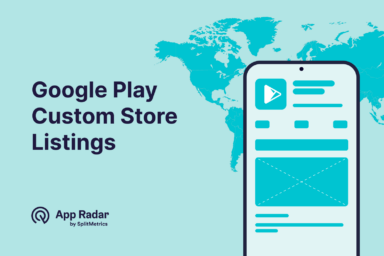Google Play Policy Changes 2021: first learnings about ASO impact
The new Google Play Store Update started to get enforced on the 29th of September 2021. That brings along two major changes in terms of App Store Optimization:
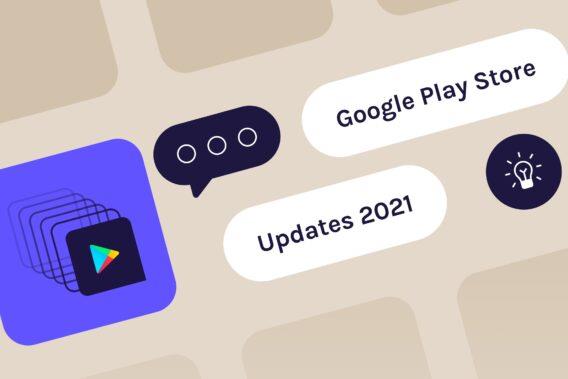
- Reducing the app title to 30 characters (instead of 50)
- Refusing popular keywords such as “best, “free”, “top”, and “new” same as for CTAs such as “download now”
Important to highlight, that as of the 15th of December 2021, the character limitation from 50 to 30 got fully rolled out. So if you want to do any changes to your store listing, you first need to be compliant with a new title regulation. However, let’s have a deeper view of how the new policy changes impact Google Play optimization and app visibility.

Google actions towards apps for not following new Google Play policies
We analyzed several apps and games on the Google Play Store to see whether neglecting the guidelines had any impact on visibility. So far it seems that the results differ. Thus, it still remains unknown how exactly Google will go about apps that do not follow the new policies.
The app “Viber Messenger” is a good example of this as it is killing two birds with one stone. They are still using more than 30 characters in the app title in the German Google Play Store. At the same time, they are using forbidden price keywords (“kostenlos” / “free”) in metadata for German and English (UK) localization. Let’s take a look at how their important keywords evolved after the Google Play Store update policy got enforced!

The keyword “chats” remained relatively stable in position 2 in Germany. Yet we could observe more fluctuations in the period before the policy change. Hence it seems the guidelines haven’t had any real impact on this keyword.
As seen in the keywords feature in App Radar, the app “Viber” experienced a drop as of the beginning of November for the keyword “messenger”. This is around a month after the official changes from Google Play Store entered into the force. Therefore, it is difficult to tell if Google actually penalized them because of not being compliant with the new store policy. The other impact factors could be also involved here (e.g. a drop in conversion rate, increased crash rate, lowered avg. star rating, etc.).
Learn more about impact factors on rankings in Google Play.
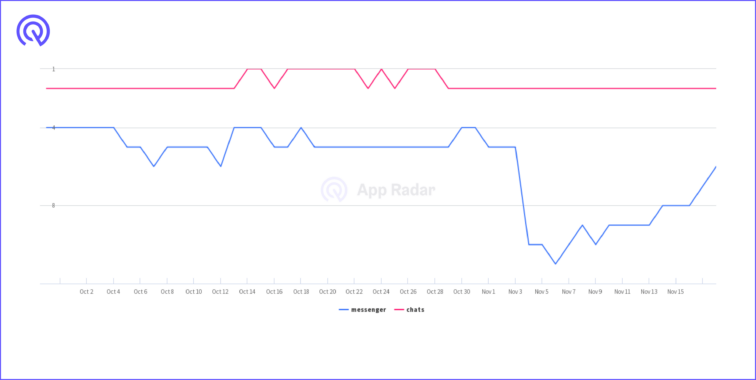
Another interesting example, as part of our analysis, is the app “Thirty One”. They reduced the length of their app title in the Netherlands about two weeks after Google enforced the new policies. You can easily see these metadata changes for any app on the app timeline in the App Radar ASO tool.
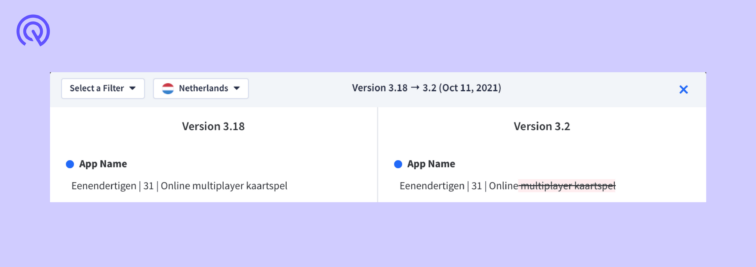
Now the question is: has Google taken any measures to penalize the app’s visibility while it was still live with the 50 characters? Let’s look at the keyword ranking evolution below provided by App Radar’s keyword feature. It seems to be related to more overall fluctuations, but no clear correlation to the policy change can be confirmed.
However, after they reduced the app title to 30 characters it seems that Google started adapting to the change which resulted in bigger drops. Based on other analyses, we expect the ranking to go up again after some stabilization time.
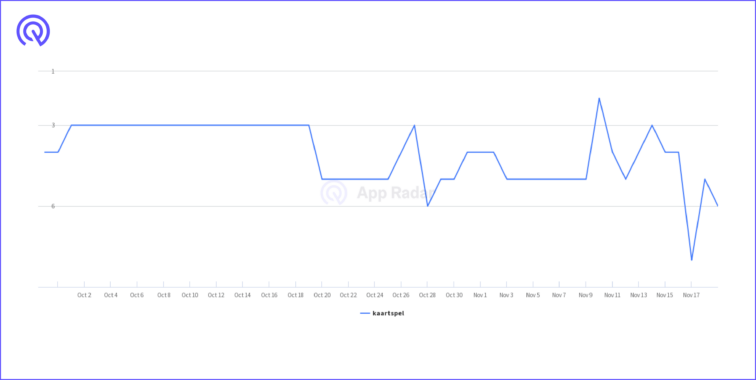
Impact on apps using forbidden keywords in Google Play Store
Apps that still use prohibited keywords within the short description have so far mostly been flagged by Google. These app developers got a notification within the Google Play Console. The example below shows the warning received from Google for having “free” included in the short description.
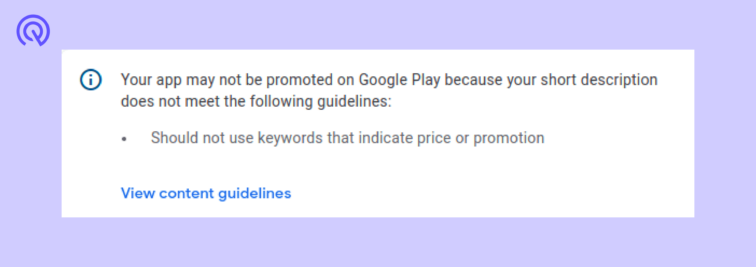
Google stated that the restrictions around certain keywords will apply for the app title, developer name, and icon. But now it seems that Google is not allowing such keywords anymore across the whole metadata.
As for the long description, we’ve observed that the word “new” was the reason why the app release got rejected:
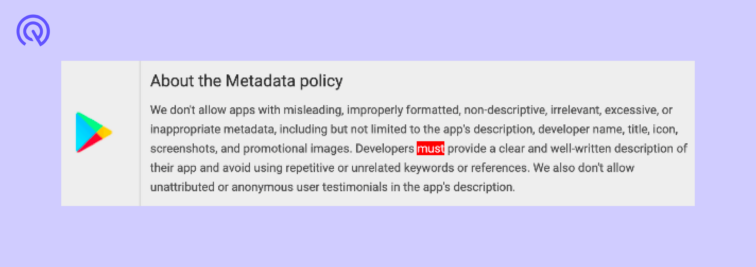
It still remains unclear how Google will go on with penalizing apps that do not meet the new criteria. However, the title appears to have the most important weight based on the warning description within the Google Play Console:
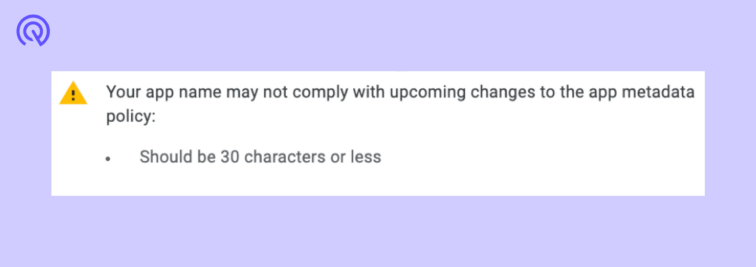
(Source: Google Play Console)
It seems that Google hasn’t started sanctioning it yet when an app exceeds the 30 character limit. Even on the Google Play Console, the title field still allows for 50 characters. Now there is only a notification that the app may not comply with the upcoming changes to the metadata policy. However, certain app developers say that some of their smaller apps and games have been suspended because of the use of “free” and “best” in the app title.
For apps that do not respect the new guidelines within the short description, the warning in the Google Play Console states a possible loss of promotion. Hence the penalization so far seems less strict compared to the app title.
Note: Don’t include to your title, short and/or long description, and to your creatives any keywords that imply store performance, ranking, awards, user testimonial or price, and promotional information.
Learn more about Google Play Store policy changes here.
Impact on apps using forbidden graphics in icons in Google Play Store
The guideline clearly states that keywords that imply store performance, promotion in the icon, title, and developer name are refused. Still, there are many apps and games out there that haven’t adapted it yet as seen in the examples below:

(Source: Google Play Store, US)
“Huuuge Games” with their Free Slots Casinos Game is a good example of neglecting the policies. They still use “top” as well as “free” in their app icons and additionally in their app titles.
In terms of visibility within the Google Play Store, no clear correlation with the policy changes could be observed so far. They haven’t been featured before the policy change nor after. Rankings on important keywords have been fluctuating for some time, which could be though related to the policy change.
Learn more about Google Play App Store Optimization:
Create optimized app icon, screenshots, feature graphic and video
Reply to Google Play reviews
Use Google Play Store Tags (2020)
Get your app featured in Google Play Store
Impact on apps that have adapted their store listing on time
A lot of apps followed the guidelines and updated their store listing according to the new Google Play Policy on time. Among them is “myposter”, who shortened its app title to 30 characters on the 10th of September (Google Play, Germany).
In order to do so, “myposter” removed “Fotos drucken” from the app title in the German Google Play Store as seen in App Radar’s app timeline.
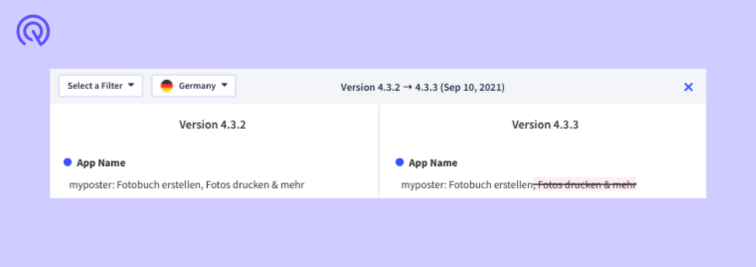
The keyword combination “Fotos drucken” hasn’t experienced a strong negative impact on ranking after removing it from the app title. Followed by a short-term drop on September 28th, the keyword combination stabilized again as of September 29th. This was supposed to be the go-live date of the new Google Play Store policy.
For the more popular keyword “fotos” a more significant drop followed shortly after the policy change. This could be a sign of the algorithm adapting to the changes. However, after some fluctuations, “myposter” achieved for the keyword “fotos” even higher than average position compared to the previous period.
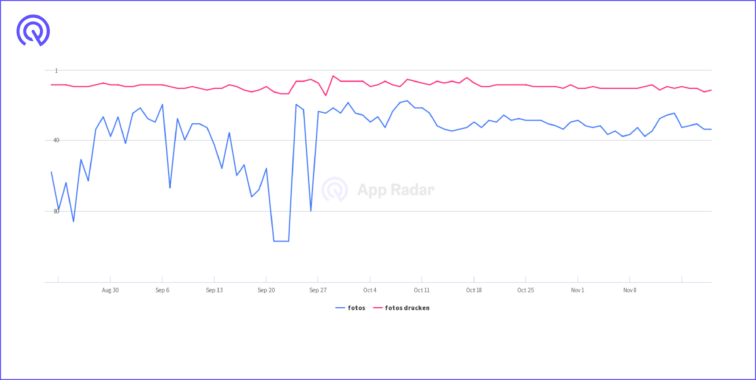
This leads to two conclusions:
On the one hand, it might be that Google liked them being early adapters and respecting the 30 characters limit at an early stage. For the keyword “fotos” with higher search volume and higher difficulty, it took some more time to stabilize while the algorithm was probably trying to adapt to the changes.
On the other hand, it seems that the increased count of repetitions across the metadata helped to buffer the loss of the keyword within the app title. While removing the keyword combination from the app title, “myposter” included the given keyword more often in the long description.
Summary of ASO Google Play Store Policy Changes in 2021
From the 29th of September 2021, new ASO Google Play Store update started to get enforced. The main changes are applying to meta description:
- Limit the length of app titles to 30 characters (instead of 50)
- Prohibit popular keywords such as “best, “free”, “top”, “new” same as for CTAs such as “download now”
Some app developers have decided to comply with the guidelines on time and not risk any damage to their app visibility. However, others have chosen to leave their metadata unchanged until they see real danger.
The measures taken by Google are still unclear for now. Some apps that neglected the guidelines lost visibility, others stayed more or less stable. It remains to be seen how strict Google will become in the future with turning those warnings into real penalties.
Therefore, your app title shouldn’t be longer than 30 characters and your metadata shouldn’t contain keywords that are not allowed anymore. We highly recommend you adapt to the new Google Play Policy as soon as possible. While you are doing the changes, make sure to watch your rankings and store visibility with App Radar!
If you are unsure about how to optimize your store listing and being compliant with the new store policy, do reach out to App Radar’s App Marketing Services Team. Our experts are here to help you optimize your store listing according to the Google Play Store update policy.
Latest Posts
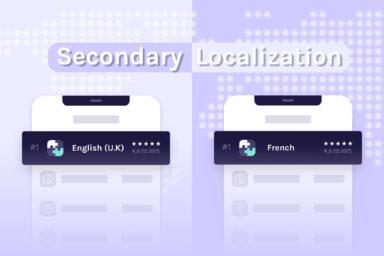
iOS App Product Page Localization: How to Use it the Right Way to Improve ASO
Top 10 Most Downloaded Games in Google Play Store (July 2025 Update)
Google Play Store Listing Experiments: How to Run Native A/B testing for Android Apps for Free!
12 Best Mobile Measurement Partners (MMPs) to Consider for Your Mobile App Attribution in 2025
Related Posts
